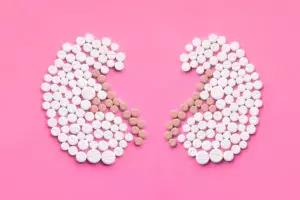- Home
- Medical news & Guidelines
- Anesthesiology
- Cardiology and CTVS
- Critical Care
- Dentistry
- Dermatology
- Diabetes and Endocrinology
- ENT
- Gastroenterology
- Medicine
- Nephrology
- Neurology
- Obstretics-Gynaecology
- Oncology
- Ophthalmology
- Orthopaedics
- Pediatrics-Neonatology
- Psychiatry
- Pulmonology
- Radiology
- Surgery
- Urology
- Laboratory Medicine
- Diet
- Nursing
- Paramedical
- Physiotherapy
- Health news
- Fact Check
- Bone Health Fact Check
- Brain Health Fact Check
- Cancer Related Fact Check
- Child Care Fact Check
- Dental and oral health fact check
- Diabetes and metabolic health fact check
- Diet and Nutrition Fact Check
- Eye and ENT Care Fact Check
- Fitness fact check
- Gut health fact check
- Heart health fact check
- Kidney health fact check
- Medical education fact check
- Men's health fact check
- Respiratory fact check
- Skin and hair care fact check
- Vaccine and Immunization fact check
- Women's health fact check
- AYUSH
- State News
- Andaman and Nicobar Islands
- Andhra Pradesh
- Arunachal Pradesh
- Assam
- Bihar
- Chandigarh
- Chattisgarh
- Dadra and Nagar Haveli
- Daman and Diu
- Delhi
- Goa
- Gujarat
- Haryana
- Himachal Pradesh
- Jammu & Kashmir
- Jharkhand
- Karnataka
- Kerala
- Ladakh
- Lakshadweep
- Madhya Pradesh
- Maharashtra
- Manipur
- Meghalaya
- Mizoram
- Nagaland
- Odisha
- Puducherry
- Punjab
- Rajasthan
- Sikkim
- Tamil Nadu
- Telangana
- Tripura
- Uttar Pradesh
- Uttrakhand
- West Bengal
- Medical Education
- Industry
Exenatide-Dapagliflozin Combo Enhances Kidney Protection: DECREASE Trial

Sodium-glucose cotransporter-2 (SGLT2) inhibitors and glucagon-like peptide-1 receptor agonists (GLP-1RAs) are common hypoglycemic drugs. Previous studies have shown that both exenatide and dapagliflozin improves kidney function. In a recent study, researchers have reported that combined therapy with exenatide and dapagliflozin may have synergistic effects on markers of kidney function compared to either therapy alone or placebo in obese patients with type 2 diabetes. The study findings were published in the Diabetes, Obesity and Metabolism on April 28, 2021.
Sodium‐glucose cotransporter‐2 inhibitors and GLP‐1RAs reduce glycated haemoglobin (HbA1c) through distinct yet complementary mechanisms of action. Because of these different mechanisms, combination treatment with SGLT2 inhibitors and GLP‐1RAs may have synergistic effects. However, there are still limited data on the effects of the combined use of SGLT2 inhibitors and GLP‐1RAs on markers of kidney function. Therefore, Dr Charlotte C. van Ruiten MD and his team conducted a study to evaluate the effects of separate and combined use of the SGLT2 inhibitor dapagliflozin and the GLP‐1RA exenatide on measures of kidney function.
It was a prespecified secondary analysis of the DECREASE trial. The researchers included a total of 66 patients and randomly assigned them to 1 of 4 twice-daily oral regimens: dapagliflozin alone, exenatide alone, dapagliflozin and exenatide in combination, or placebo. At week 16 of follow-up, the researchers evaluated kidney function using 24-hour urinary albumin to creatinine ratio (UACR), creatinine and cystatin C‐estimated glomerular filtration rate (GFR) and kidney injury molecule‐1:creatinine ratio (KIM‐1:Cr).
Key findings of the study were:
- By week 16, the researchers found that UACR significantly decreased by
◊ 39% in the dapagliflozin and exenatide group,
◊ 18.1% in the dapagliflozin group,
◊ 15.6% in the exenatide group, and
◊ 11.0% in the placebo group.
- Compared to placebo, they found that the UACR difference at week 16 in the exenatide‐dapagliflozin group was −32.2%.
- They noted similar effects in 37 participants who were using angiotensin‐converting enzyme inhibitors or angiotensin receptor blockers at baseline.
- Compared to placebo, they observed that participants in the exenatide‐dapagliflozin group had an acute dip in estimated GFR with creatinine‐estimated GFR (−4.0 mL/min/1.73 m2) and cystatin C‐estimated GFR (−10.4 mL/min/1.73 m2).
- They noted that the mean KIM‐1:Cr difference in the combined treatment arm versus placebo was −43.8%.
The authors concluded, "In obese patients with type 2 diabetes, combined therapy with exenatide and dapagliflozin may have additive effects on albuminuria, estimated GFR and metabolic risk factors compared to either therapy alone or placebo. These data support dedicated clinical trials to confirm the efficacy and safety of GLP‐1RA/SGLT2 inhibitor combination treatment in improving kidney outcomes."
For further information:
https://doi.org/10.1111/dom.14410
Dr Kartikeya Kohli is an Internal Medicine Consultant at Sitaram Bhartia Hospital in Delhi with super speciality training in Nephrology. He has worked with various eminent hospitals like Indraprastha Apollo Hospital, Sir Gangaram Hospital. He holds an MBBS from Kasturba Medical College Manipal, DNB Internal Medicine, Post Graduate Diploma in Clinical Research and Business Development, Fellow DNB Nephrology, MRCP and ECFMG Certification. He has been closely associated with India Medical Association South Delhi Branch and Delhi Medical Association and has been organising continuing medical education programs on their behalf from time to time. Further he has been contributing medical articles for their newsletters as well. He is also associated with electronic media and TV for conduction and presentation of health programs. He has been associated with Medical Dialogues for last 3 years and contributing articles on regular basis.
Dr Kamal Kant Kohli-MBBS, DTCD- a chest specialist with more than 30 years of practice and a flair for writing clinical articles, Dr Kamal Kant Kohli joined Medical Dialogues as a Chief Editor of Medical News. Besides writing articles, as an editor, he proofreads and verifies all the medical content published on Medical Dialogues including those coming from journals, studies,medical conferences,guidelines etc. Email: drkohli@medicaldialogues.in. Contact no. 011-43720751


